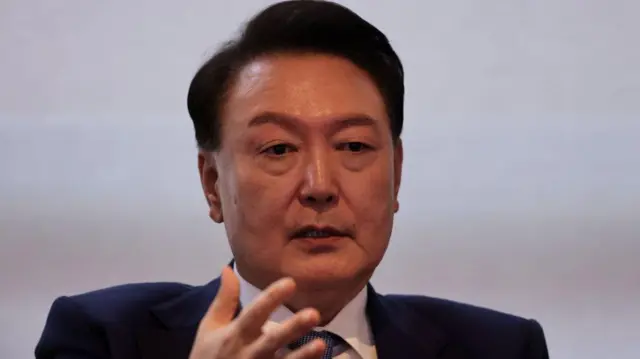South Korean President Yoon Suk Yeol was impeached on Saturday in a parliamentary vote following his brief declaration of martial law last week.
Yoon now becomes the third South Korean president to face impeachment by parliament. If the decision is upheld by the Constitutional Court, he would be the second president removed from office.
South Korea’s history is marked by leaders whose tenures ended in controversy and scandal. Here’s a look at the downfalls of previous presidents:
2016: Park Geun-hye impeached and jailed
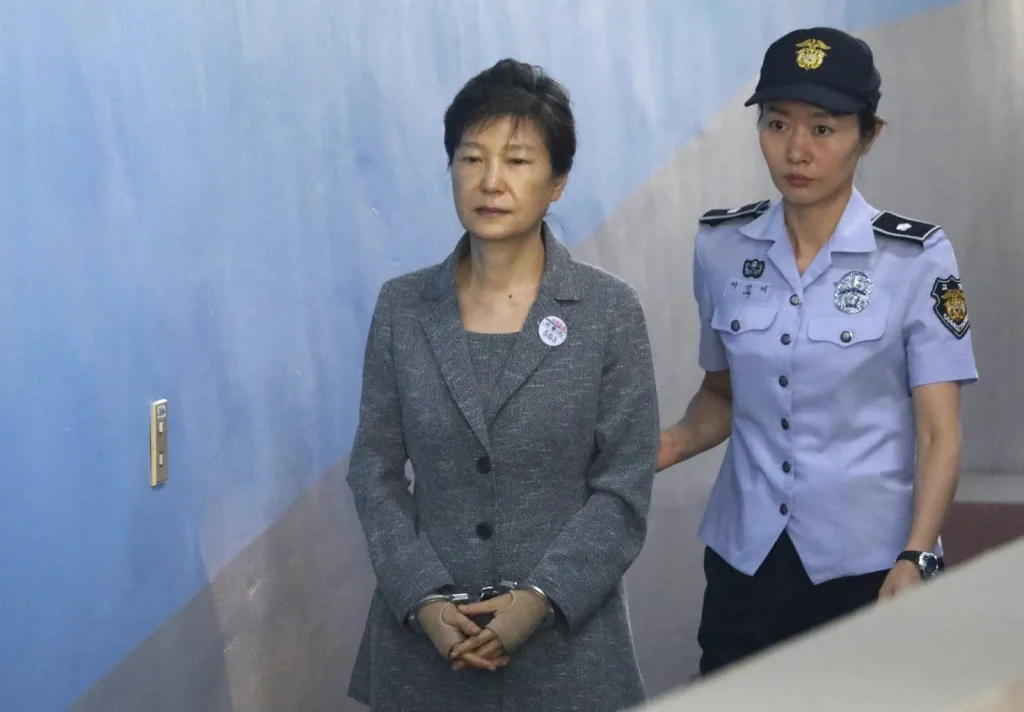
In December 2016, Park Geun-hye, South Korea’s first female president, was impeached by parliament, a decision confirmed by the Constitutional Court in March 2017. Her removal led to her indictment and imprisonment.
The daughter of former dictator Park Chung-hee, Park was accused of receiving or soliciting tens of millions of dollars from conglomerates, including Samsung. Other charges included sharing classified documents, blacklisting artists critical of her policies, and dismissing officials who opposed her.
In 2021, Park was sentenced to 20 years in prison and fined heavily. However, she was pardoned later that year by her successor, Moon Jae-in. Notably, Yoon Suk Yeol, then a Seoul prosecutor, played a significant role in her impeachment and incarceration.
Lee Myung-bak: 15 years in prison
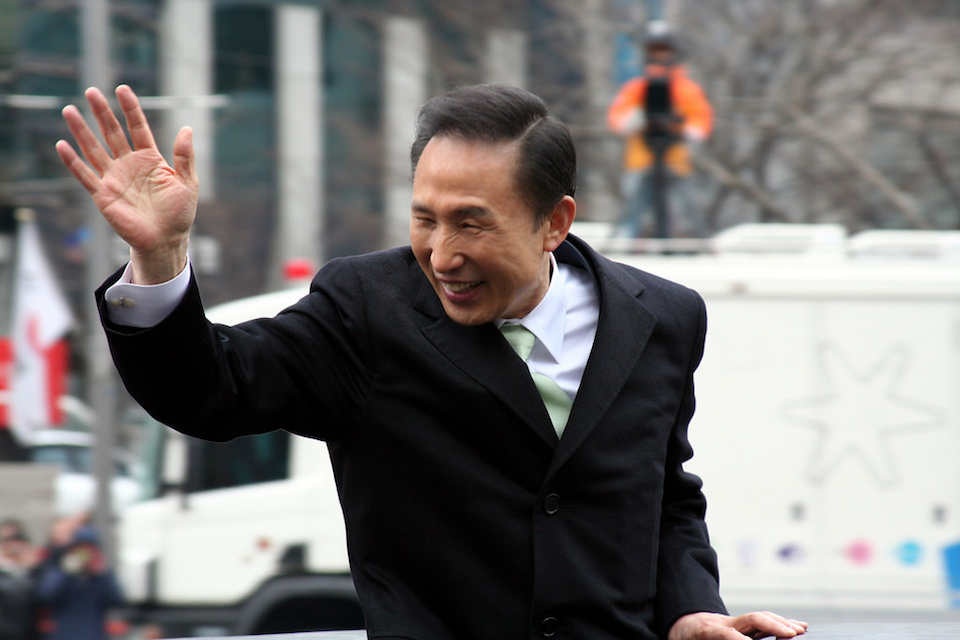
Park’s predecessor, Lee Myung-bak, who served as president from 2008 to 2013, was sentenced in October 2018 to 15 years in prison for corruption. He was found guilty of accepting bribes from Samsung in exchange for favours to the conglomerate’s then-chairman, Lee Kun-hee, convicted of tax evasion.
Lee was pardoned by President Yoon in December 2022.
Roh Moo-hyun: suicide and scandal
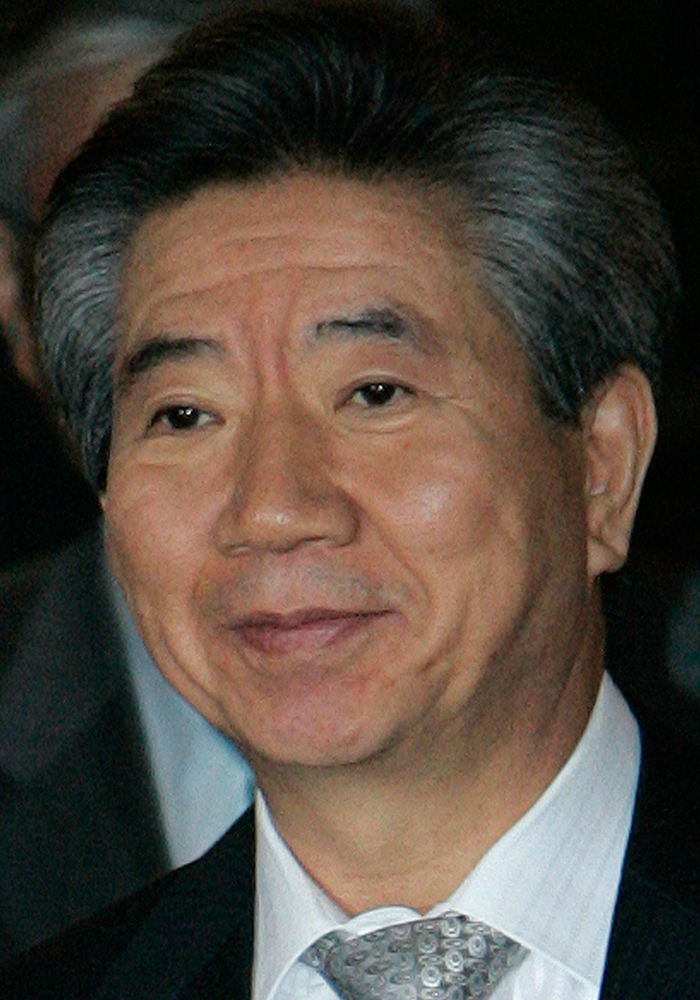
Roh Moo-hyun, president from 2003 to 2008, was a liberal reformer and advocate of rapprochement with North Korea. In May 2009, he took his own life by jumping from a cliff while facing an investigation into a payment scandal involving his wife and a relative.
1987: Chun Doo-hwan steps down
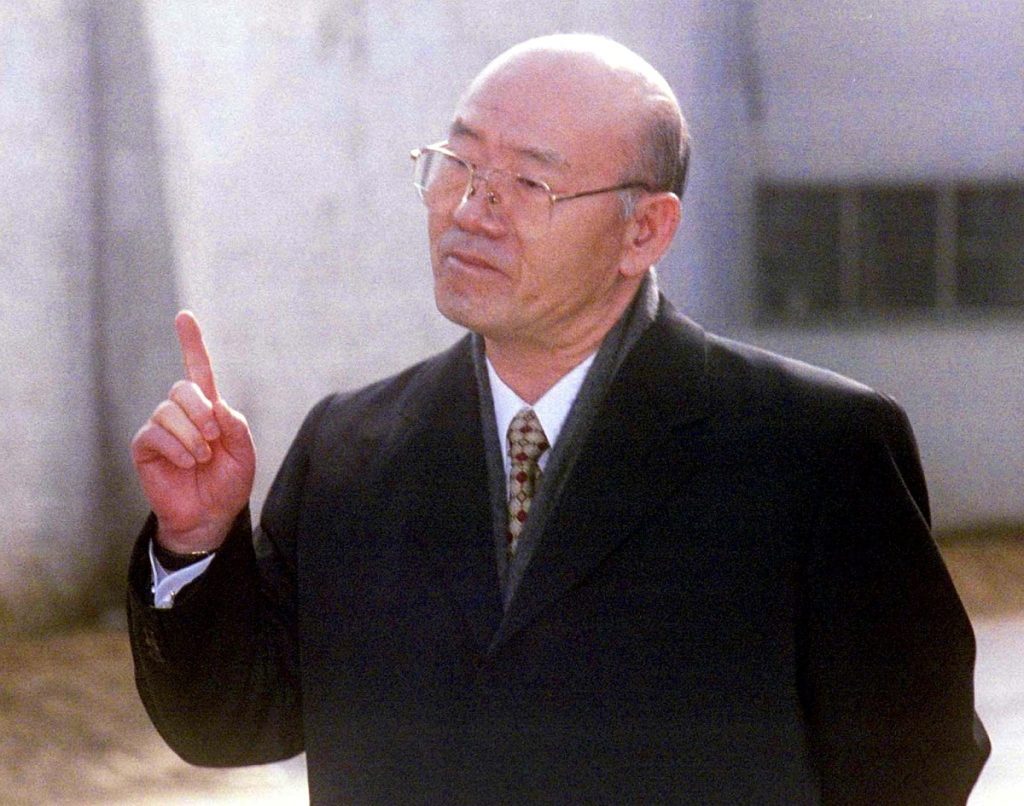
Military autocrat Chun Doo-hwan, infamous as the “Butcher of Gwangju” for his violent suppression of a 1980 uprising, stepped down in 1987 under the pressure of mass pro-democracy demonstrations. He handed over power to his protege, Roh Tae-woo.
Both Chun and Roh were later convicted of treason for their roles in the 1979 coup and the Gwangju massacre. Chun was sentenced to death, later commuted to life in prison, while Roh was sentenced to 17 years. Both were granted amnesty in 1998 after serving two years.
1979: Park Chung-hee assassinated

Park Chung-hee, who ruled South Korea with an iron fist from 1961, was assassinated in October 1979 by his intelligence chief during a private dinner. His death led to political chaos, exploited by Chun Doo-hwan and Roh Tae-woo, who staged a coup later that year.
1961: Yun Po-sun overthrown in a coup
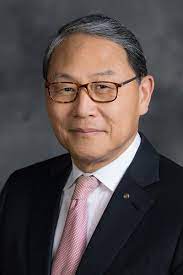
President Yun Po-sun was ousted in 1961 by a military coup led by Park Chung-hee. While Yun nominally retained his position, Park seized control of the government and formally replaced him after winning the presidency in 1963.
1960: Syngman Rhee forced into exile
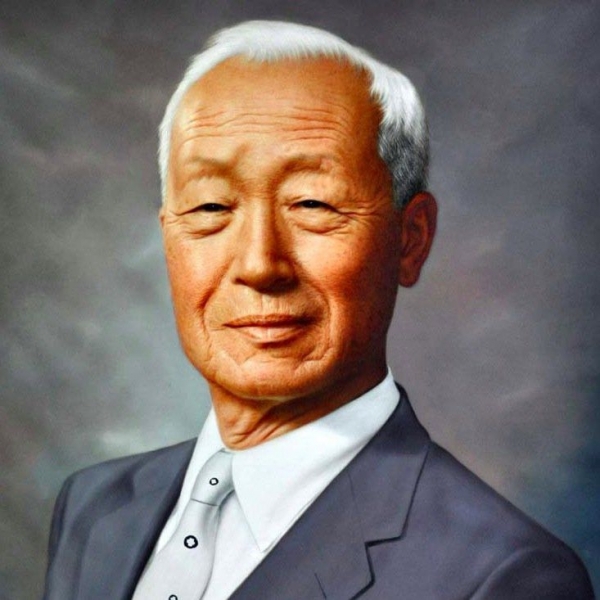
South Korea’s first president, Syngman Rhee, was forced to resign in 1960 after widespread protests following his attempt to extend his term through fraudulent elections. He fled to Hawaii, where he lived in exile until his death in 1965.
South Korea’s turbulent political history underscores the fragility of its leadership transitions and the ongoing struggle between democratic aspirations and authoritarian legacies.


